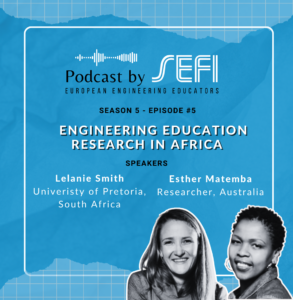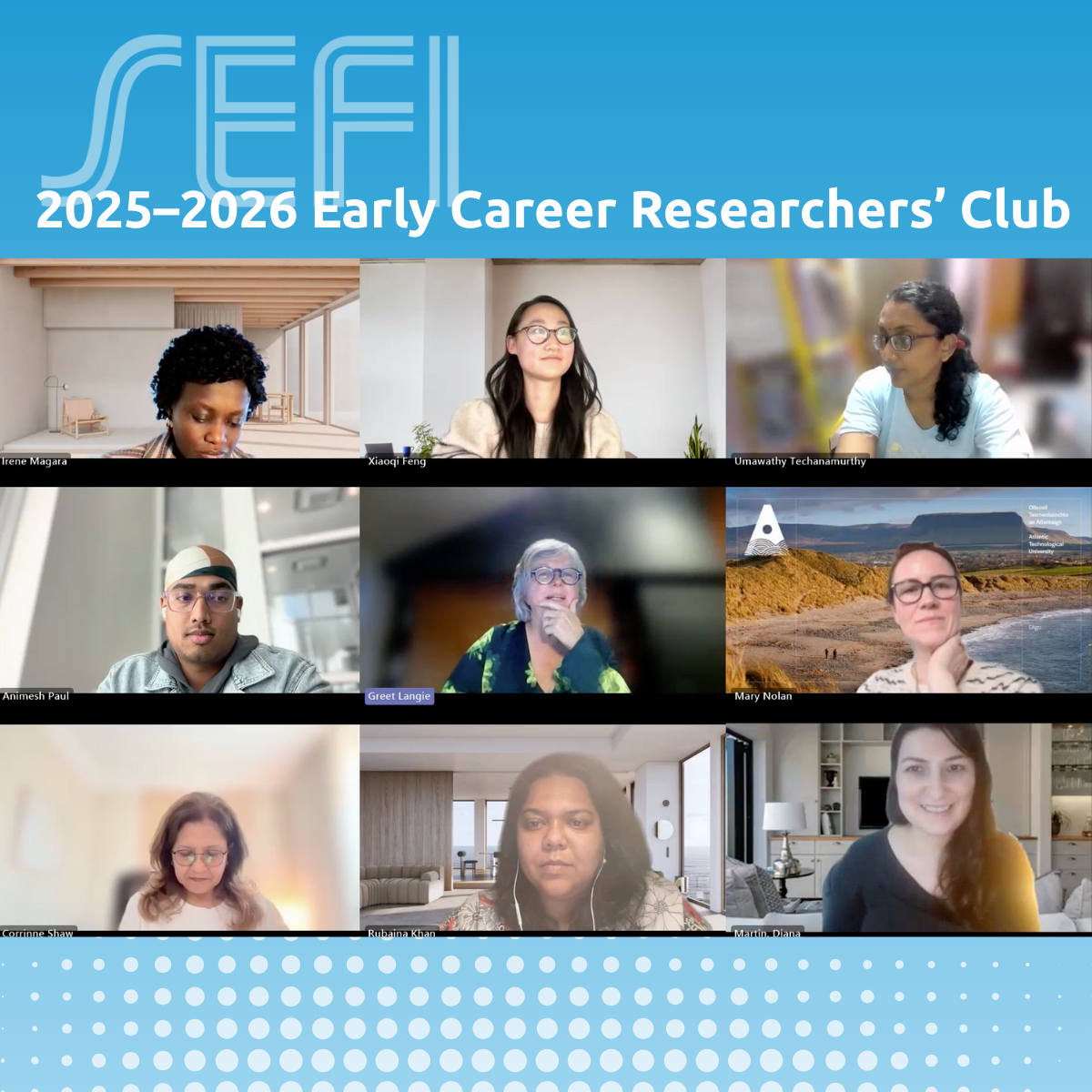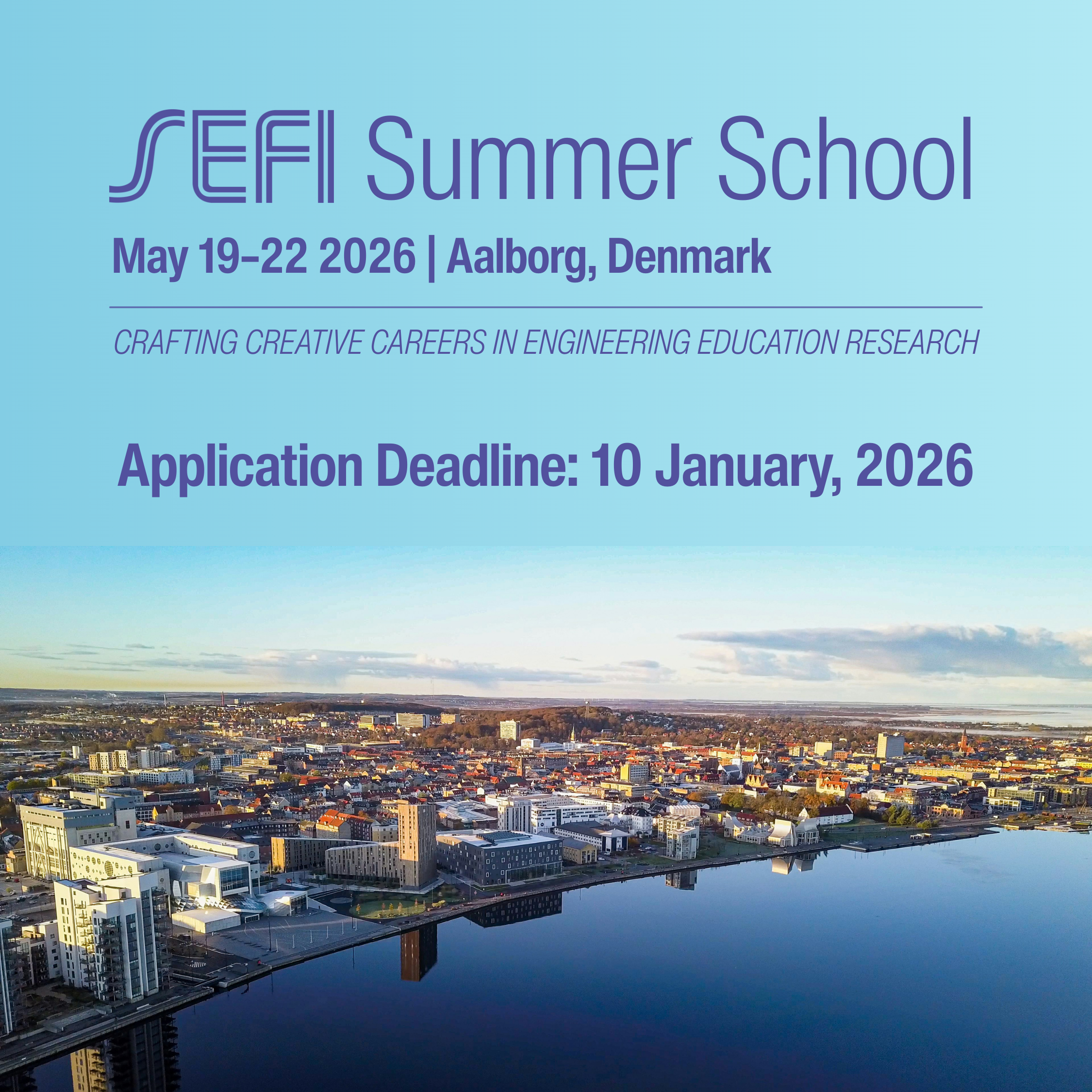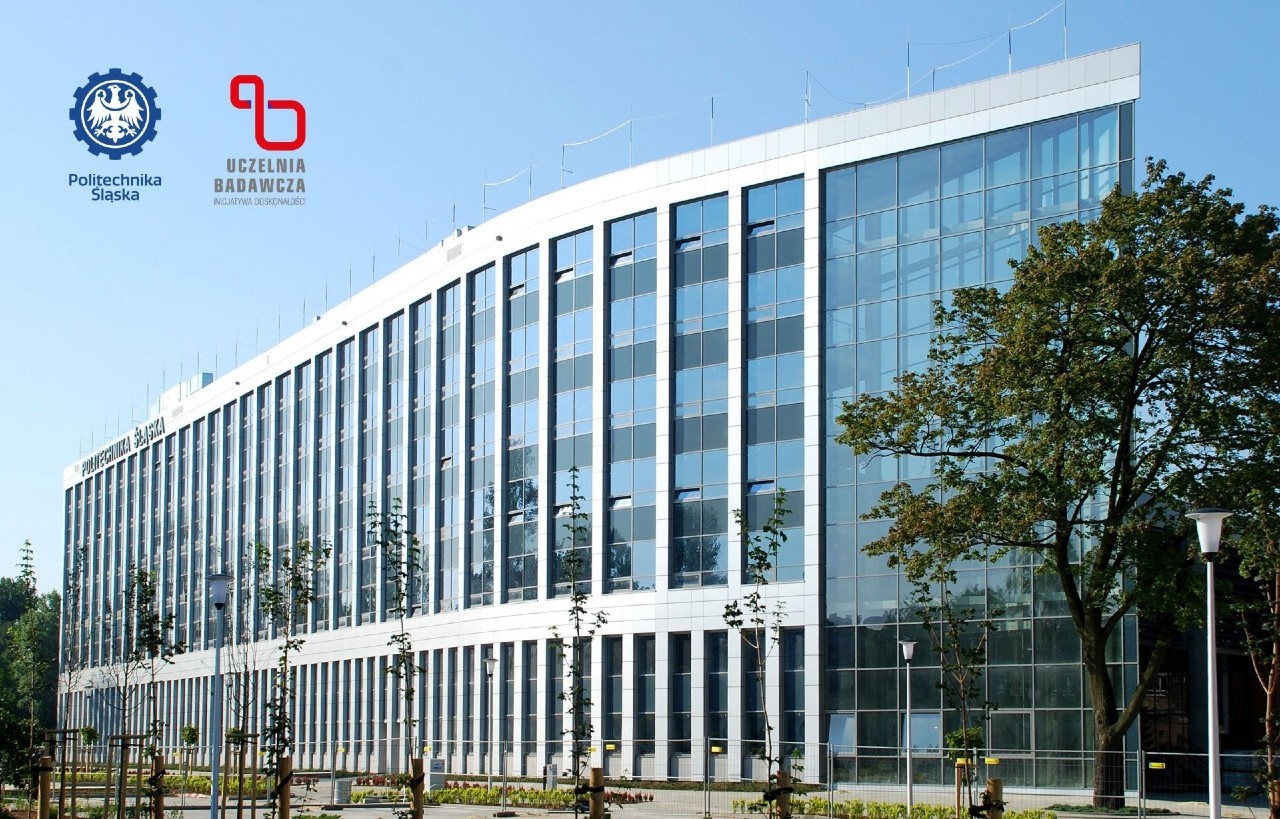The SEFI Early Career Researchers’ Club is a 9-month initiative designed to support and connect…

The isolation felt by engineering educators who are passionate about teaching and learning, but who reside in technically focused engineering departments, is widely reported. The case is no different in Africa, where few institutions recognise educational research as a valid research focus in engineering, this resulting in lack of capacity for engineering education research (EER) and meaning that African educational innovations are not well represented in the literature. Although educators within Africa may make use of research findings from elsewhere, or receive support from those in different geographical locations, the contextual nature of education research means there is a need for supportive national and regional communities.
In this episode we speak to Lelanie Smith, a Senior Lecturer in the Faculty of Engineering, Built Environment and IT at the University of Pretoria and Dr. Esther Matemba, an independent Engineering education researcher, consultant, and a sessional academic at Curtin University, Australia. Together, the two co-lead the Engineering Education Research Network for Africa (EERN-Africa).
The rest of the article will summarise key points of discussion.
The context
Our guests explain that EER is not a field that you can actively pursue or go into in Africa, which has only one EER centre in Cape Town (South Africa), this leading to a lack of resource and dissemination. The lack of recognition and reward for learning and teaching means it is hard to build capacity in the area. They also stress that the contextual differences between Africa and elsewhere mean that there is a need for local understanding, as well as that derived from data collected elsewhere. They also claim that some theoretical frameworks cannot be applied in their context, providing an example by telling us that the factors which impact student success are very different in the Global South compared to the Global North
The start of the network
Esther explains that the network started as an idea following a coffee break discussion (focused on EER in African countries) at an online event, “The Big Engineering Education Research Meet Up”, at the onset of the pandemic (14th of May 2020), which was facilitated by Lelanie, as well as Mike Klassen and Aida Guerra, with Esther being a participant. After this, the four continued to meet and planned a workshop at the World Engineering Education Forum (WEEF) in November 2020, through which they made more contacts, gained awareness of the projects and initiative already running, and realised the need for a community within Africa. It was at this point that Esther and Lelanie decided to form an informal community using a WhatsApp group, and started by inviting the participants of the WEEF workshop and others they knew in their personal networks.
Aims
The aims of the network include:
- Enabling connections and conversation between practitioners and researchers with a shared interest in engineering education in African contexts;
- Building capacity for research in engineering teaching and learning;
- Providing research-based solutions to engineering education problems that are applicable to African contexts, including matters of curriculum, teaching and learning, assessment and accreditation; and
- Increasing representation of African perspectives of engineering education practice in the international literature.
Activities
Lelanie explains how the first members of EERN-Africa established a WhatsApp group, which continues to serve as the main mechanism for introducing new members and communication. Through word-of-mouth referrals at engineering education events, new members joined, and they now have around 160 people from more than 20 countries in Africa, including both emerging and established researchers in engineering education, and engineering education practitioners.
The members engage with each other in monthly online meetings which allow for sharing of projects. They also share information in an online repository, and more recently have created a LinkedIn page.
This community have written publications, as well as funding proposals together. As the network grows, key topics of interest, such as student success, have started to emerge.
EERN-Africa as a Community of Practice (COP)
Esther explains the reasons for framing the network as a COP, drawing up the work of Lave and Wenger (1991) who characterise a COP in terms of three elements: a domain or a common interest, in this case being engineering education; a community (people with commitment to the domain) which, in this case includes engineering educators and practitioners; and a shared practice (collective learning through joint activities, discussions, information sharing and helping each other), in this case pertaining to teaching and learning practices and related research. A CoP is permeable and not a closed community, allowing for members to participate in different ways and capacities, and creating opportunities for members to learn from each other (Wenger, 1998).
Lelanie tells us how framing the network as a COP and writing the paper (link below) allowed for the understanding of the different people involved, their motivations and perceptions about what the network was doing. She also explains that COP theory allowed them to understand how to manage sustainability of the network as it grew in size, as well as demonstrate and showcase its success.
Achievements
Lelanie tells us about being awarded funding for 25 PhDs and 8 Master’s in EER across Africa which will be run from the Centre of Research and Engineering Education at the University of Cape Town. This will allow for the development of researchers, but also for mobility and knowledge exchange
She explains that because there is currently little known about engineering education within Africa, many of the projects will be framed around different key areas including student success, experiential and project-based learning, as well as accreditation and policy, and that many of the supervisors will include members of the network.
Esther describes this as a big breakthrough for the network, saying that previously those who wanted to do a PhD in EER were unable to due to a lack of institutional and departmental structures.
Lelanie also speaks about the Royal Academy of Engineering grant (‘Transforming Systems through Partnerships’) which has funded a national initiative involving 16 institutions across South Africa, which has, so far, been running for three years. She explains that this supported running workshops and events, but that they also benefited from the reputation of the Royal Academy of Engineering, as well as the way they worked to champion the project and provide connections.
Working with other networks
Esther explains that she was the African representative for REEN (Research in Engineering Education Network) when the EERN-Africa community first came together, and that REEN has therefore been a supportive influence throughout. For example, they have supported in running workshops and identifying speakers. Also mentioned are the South African Society of Engineering Education (SASEE), the African Engineering Education Association, as well as the African diaspora.
What is next?
Lelanie explains that next steps include formation of stronger special interest groups and producing publications to disseminate the work that is already ongoing.
Final advice
Our guests give the final pieces of advice in terms of leading such initiatives:
- Don’t wait for resources or the right time or things. Find the right people and start small.
- Keep momentum (e.g., have meetings even if not many people turn up) and be consistent.
- Don’t take (lack of) participation personally. Remember that everyone is busy and that them not attending events does not indicate their interest levels or how much value they place on the content.
- Clarify what your role is in leading.
- Allow people to move in and out and have periods of being active and less active.
- Find a leadership partner.
Resources
A paper about EERN-Africa as a Community of Practice
Esther Matemba, Lelanie Smith, Karin Wolff, Helen Inglis, Disaapele Mogashana, Lauren Jansen, Alison Gwynne-Evans, Anita L. Campbell, Cedrick Kwuimy, Shamim Nassar, Irene Magara, Bruce Kloot, Teresa Hattingh, Atanda Raji, Tagwa Musa & Abel Nyamapfene (2023): Reflecting on a community of practice for engineering education research capacity in Africa: who are we and where are we going?, Australasian Journal of Engineering Education, DOI: 10.1080/22054952.2023.2233340
An introduction to EERN-Africa posted on the REEN website
https://reen.co/introducing-the-engineering-education-research-network-africa-eern-africa/
A podcast episode on which Esther features
A link to the network LinkedIn page
To find out more about the Master’s and PhD programme visit


